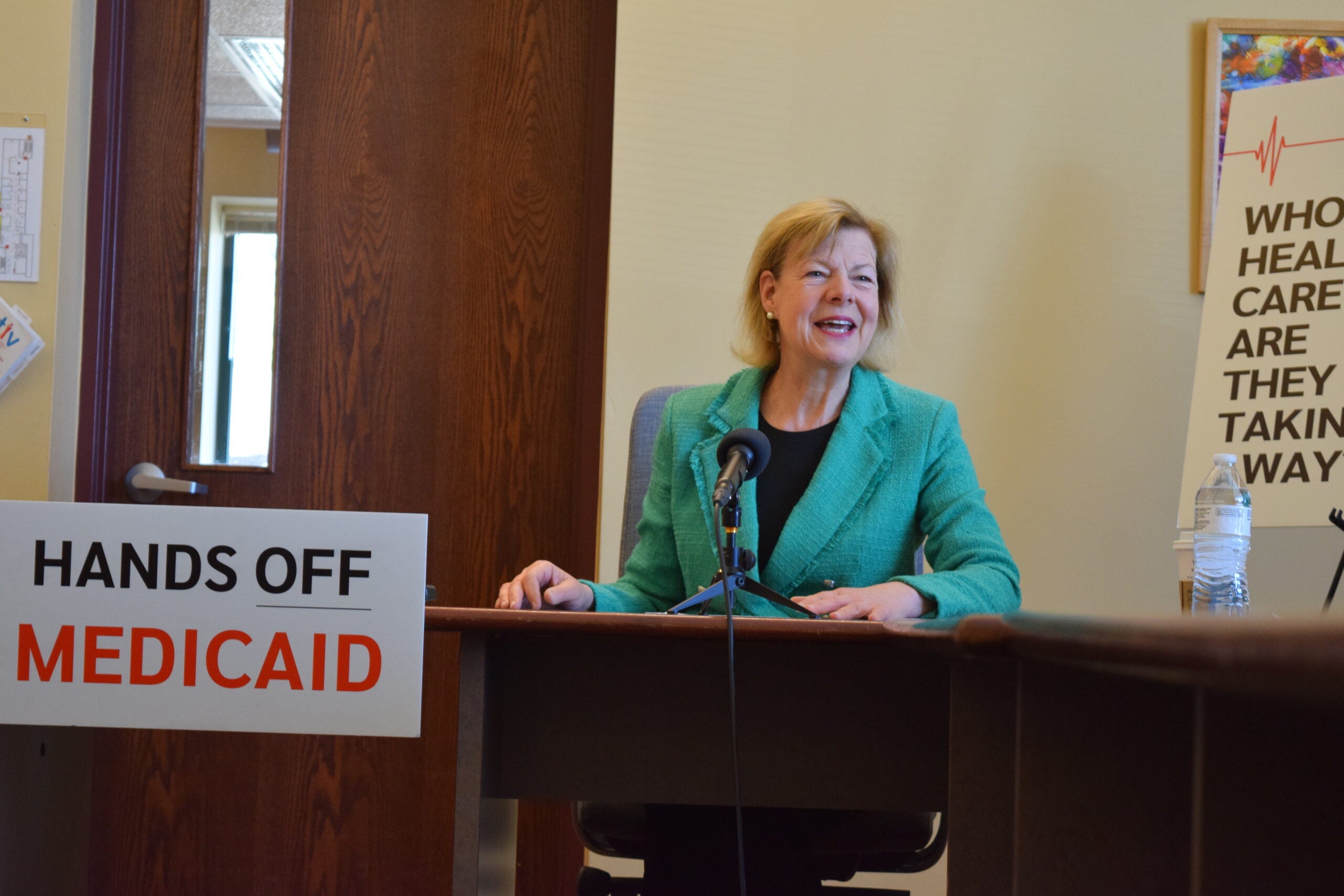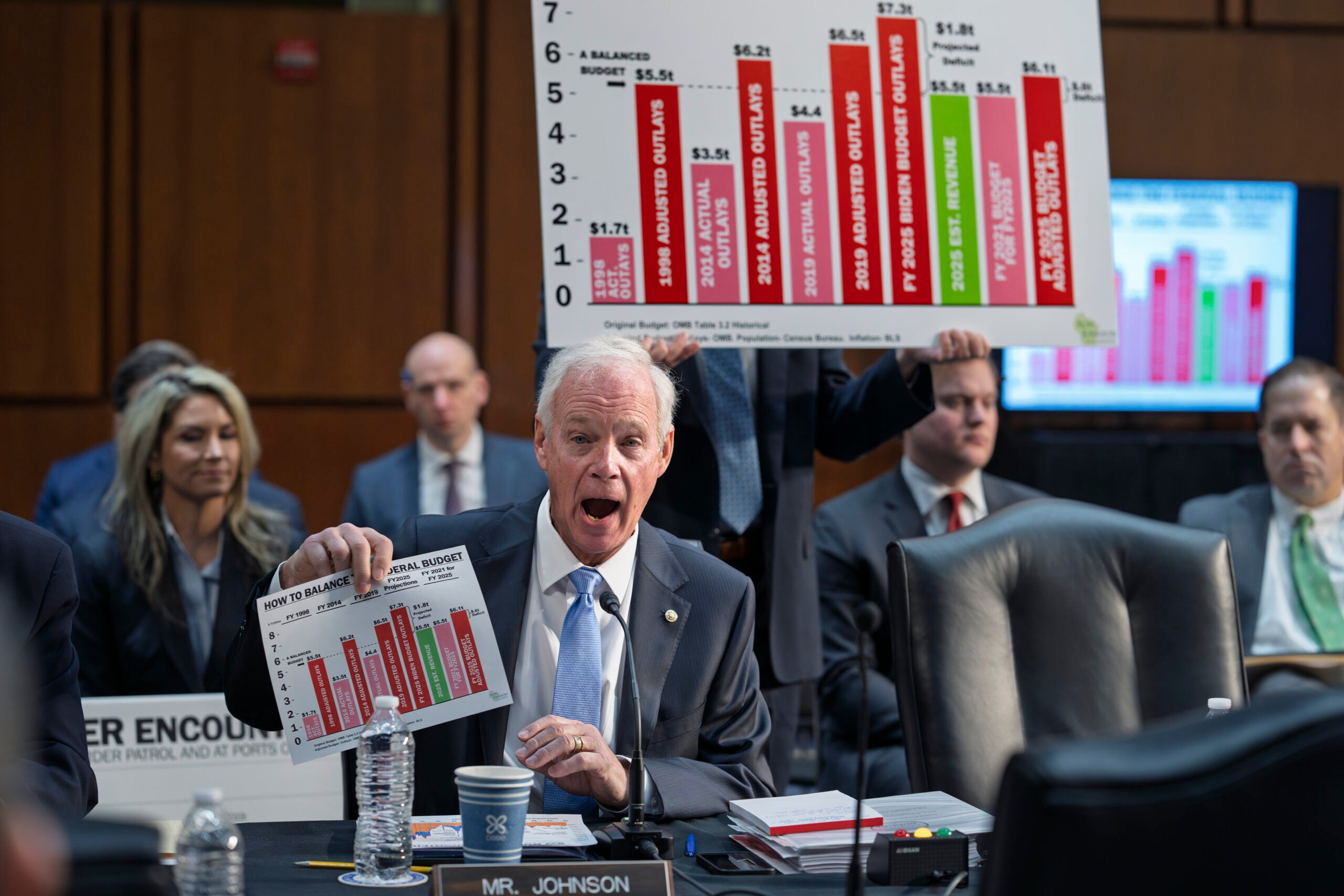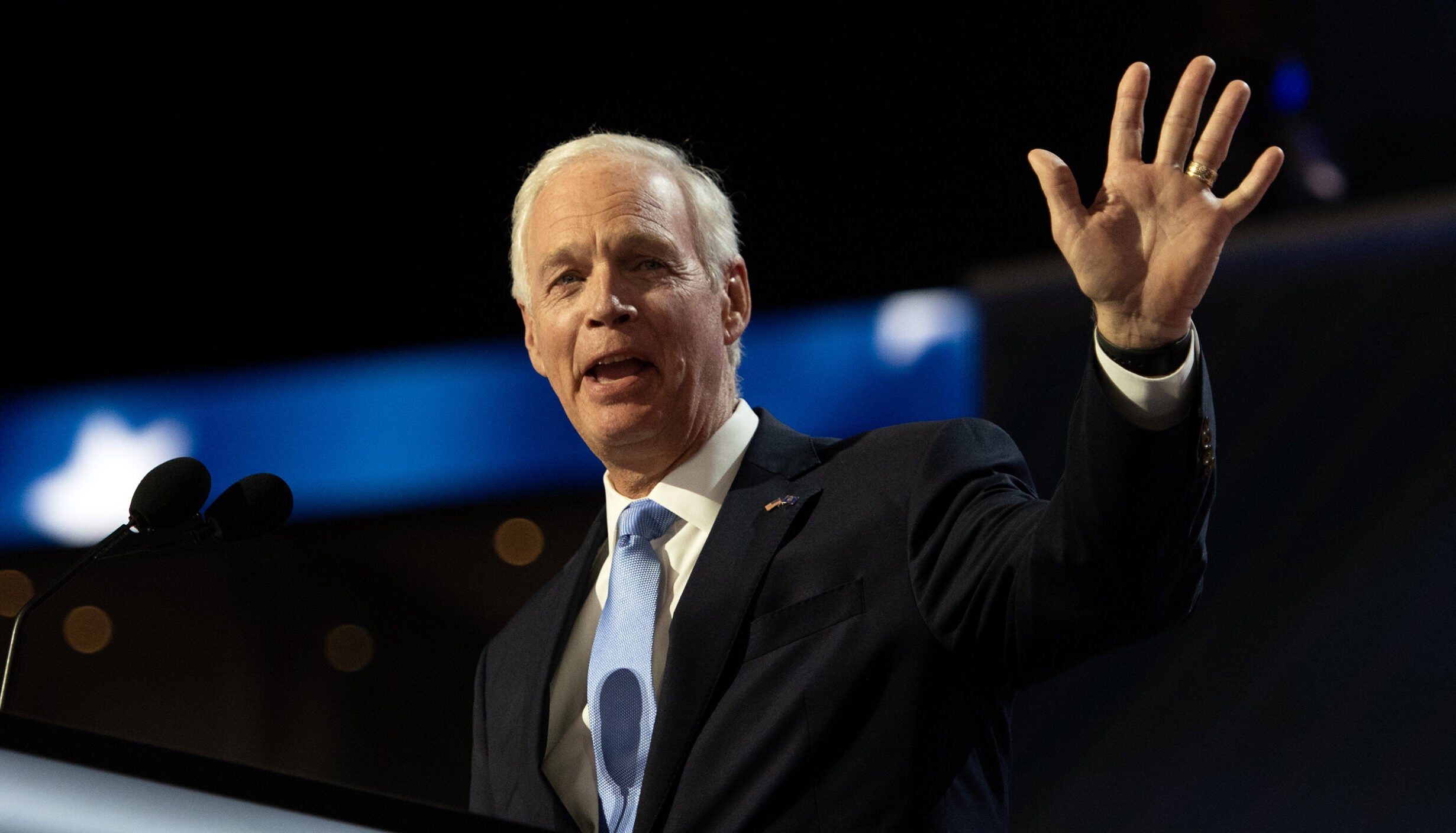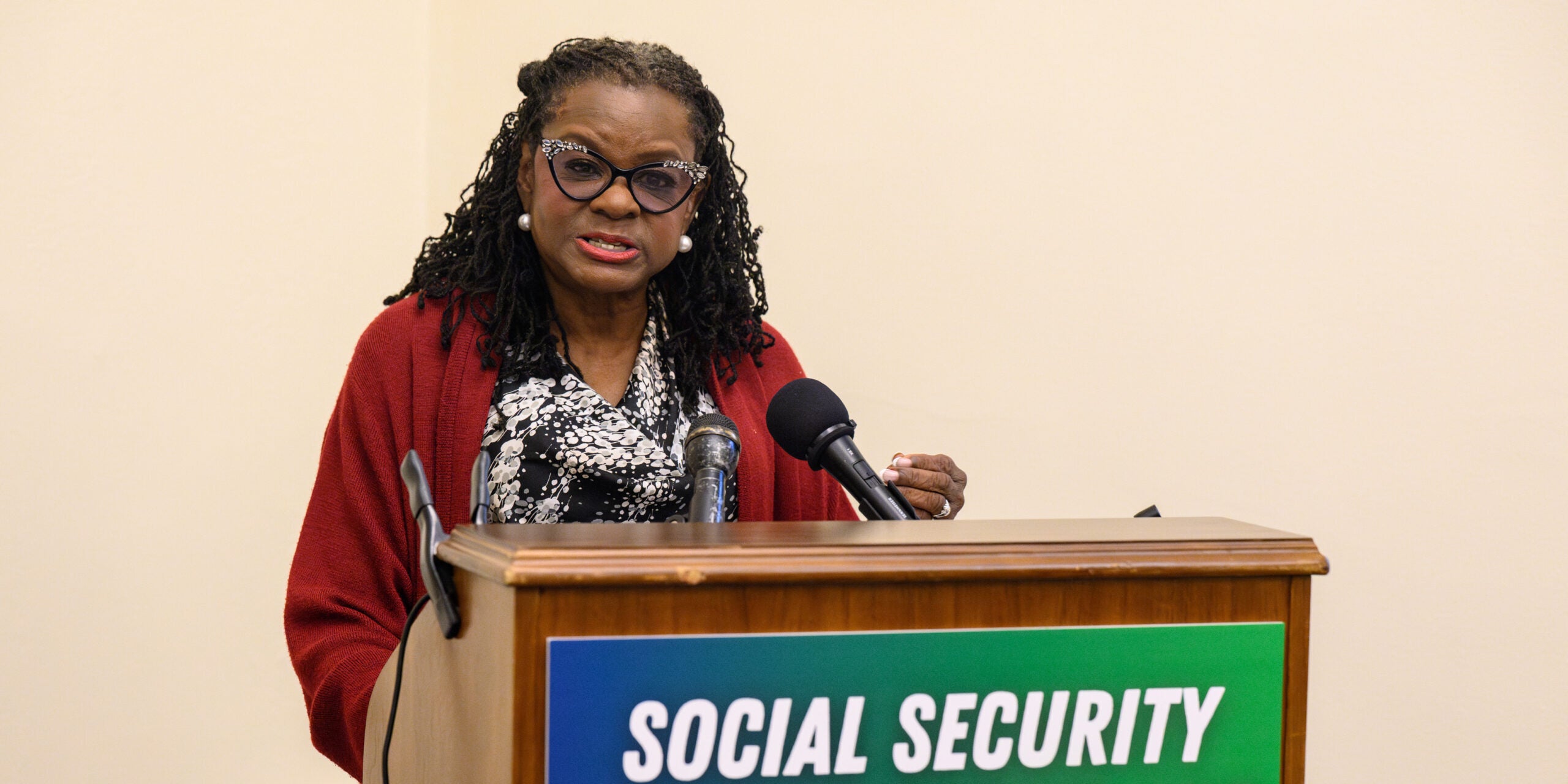Republican Sen. Ron Johnson remains opposed to a massive budget bill in Congress, telling WPR he wants to see larger spending cuts and an extension of federal tax cuts.
Two weeks ago, the U.S. House of Representatives passed the budget reconciliation bill called the “One Big Beautiful Bill Act.” After an all-night session, it passed by just one vote, 215 to 214.
Now, the bill has moved to the Senate, where Democrats like Wisconsin Sen. Tammy Baldwin are voicing opposition because of major cuts to programs like the Supplemental Nutrition Assistance Program, or SNAP, and Medicaid.
News with a little more humanity
WPR’s “Wisconsin Today” newsletter keeps you connected to the state you love without feeling overwhelmed. No paywall. No agenda. No corporate filter.
But a handful of Republican senators, including Johnson, say they plan to vote “no” on the budget package if there aren’t additional cuts to reduce spending. He joined WPR’s “Wisconsin Today” to discuss his concerns about the bill.
Top concern is national debt
Johnson is a fiscal hawk who has described himself as “more Tea Party than Republican.” He is concerned about the more than $4 trillion the bill proposes to add to the debt ceiling.
“I think the lack of focusing on the facts and figures during the House passage is the first thing we need to address,” Johnson said.
He said today’s Congressional spending levels are “unprecedented.”
“[Former President Joe] Biden averaged deficits of $1.9 trillion, and that’s our starting point. That’s apparently the new normal. I’m not accepting a new normal, and unfortunately, the ‘Big Beautiful Bill’ pretty well accepts that new normal,” Johnson said.
“We have to return to a reasonable pre-pandemic level of spending,” he added.
During Trump’s first term, the national debt rose by almost $7.8 trillion, including about $3 trillion for COVID-19 relief spending. Biden oversaw another $8.4 trillion added to the debt.
Reducing spending
When asked about where he would like to see the cuts made, Johnson did not list any specific programs or budget lines he thinks should be reduced.
“You have to go through every line of the federal budget,” he said. “You have to forensically audit over 2,600 federal government programs.”
Johnson claimed that “if you put the spending under a microscope, there would literally be hundreds of billions of dollars throughout the federal budget that if you eliminate it, nobody would even notice, other than the grifters who are sucking down the waste, fraud and abuse.”
Elon Musk’s Department of Government Efficiency, or DOGE, has popularized the phrase “waste, fraud and abuse.” After several months of slashing federal programs and initiating mass layoffs of the federal workforce, DOGE estimated that it saved the government $180 billion — a number that analysts say is likely an overestimation.

Impacts of SNAP and Medicaid cuts
Democrats, and some Republicans, have expressed concerns about cuts to food assistance and health coverage programs that their constituents rely on. Johnson chalked this up to “rhetoric” and “fear-mongering.”
“We’re not talking about doing anything with Medicaid for vulnerable, disabled children or pregnant women or the truly vulnerable,” Johnson said. “We’re talking about Obamacare [the Affordable Care Act], which is now called Medicaid expansion, which is for single, able-bodied, working-age adults who aren’t working, who should be working, who should be getting their health insurance by getting a job.”
An analysis by Joint Economic Committee Democrats estimates that between Affordable Care Act coverage and Medicaid, more than 220,000 Wisconsin residents will lose health insurance coverage if the bill passes in its current form. Joint Economic Committee Republicans issued a response saying that these numbers are inflated.
What about the tax breaks?
The “Big Beautiful Bill” extends Trump’s sweeping tax cuts from 2017. When asked if he would be willing to forgo these tax cuts to help balance the budget, Johnson said no.
“No, I do not want to increase anybody’s taxes,” he said.
In 2024, tax revenues were 16.6 percent of U.S. gross domestic product, according to the economic firm CEIC Data. Johnson said that this is right around the 50-year average of 17.4 percent.
“We need to recognize that reality, and we have to start bringing spending back in line with that,” he said. “You can try punishing success. It just doesn’t work.”
AI provision in the budget bill
The bill also includes a provision keeping states from regulating artificial intelligence technology for 10 years. Three Wisconsin lawmakers — two Republicans and a Democrat — recently signed a letter to Congress opposing this moratorium on regulating AI.
“I don’t like it because it hasn’t been discussed. It hasn’t been debated,” Johnson said. “This is an incredibly complex issue, AI.”
Johnson said that he is using AI to do a sensitivity analysis on the projections from the Congressional Budget Office as part of the larger budget debate.
“It’s marvelous. It’s a great tool, but it could be unbelievably dangerous as well,” he said. “It’s hard to say what is the right level of regulation on this.”
Johnson said that he’s not in favor of including policy issues in the budget bill, which is meant to focus on fiscal matters.
“I doubt this is going to survive the Byrd bath,” Johnson said, referring to the Byrd Rule, which limits what kinds of items can be included in budget reconciliation legislation. “I don’t understand what the budgetary impact of that (AI provision) would be at all.”
Editor’s note: This story has been updated to reflect that the estimate of how many people could lose health care coverage under the current bill originated with the Joint Economic Committee Democrats and was not an independent analysis. A link to the Joint Economic Committee Republicans’ response was added.






